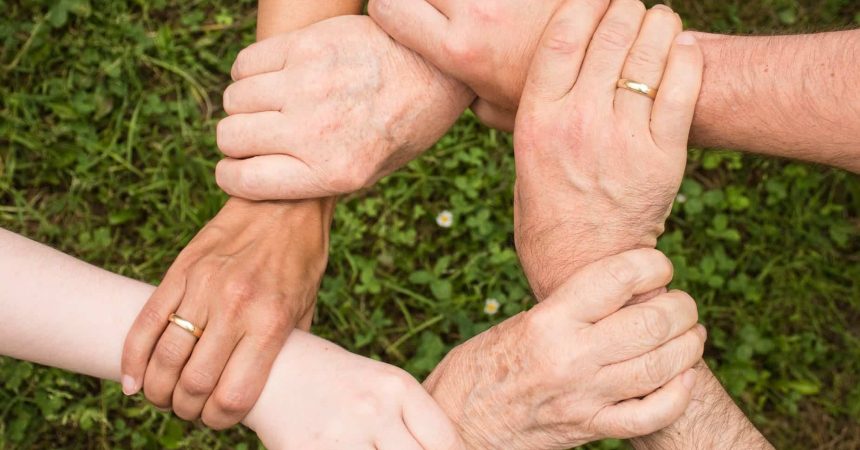Substance use disorder (SUD) is a chronic disorder, meaning that it is something that people will continually struggle with, even after treatment. There are high rates of people who relapse after inpatient or other intensive types of treatment. However, research shows that people who participate in support groups have a lesser chance of relapse. Having a support group could help you stay focused on your sobriety goals.
Life is bound to put you through highs and lows, and being a part of a support group gives you a chance to continue to expand your support group and get to know your peers. A support group might make you feel less alone in your recovery journey and give you tools to manage your symptoms.
12-Step Programs
12-Step programs are international programs that have been around since 1935. The philosophies and values of 12-Step programs are based on religion and spirituality. Many modern 12-Step programs, including AA, are geared towards inclusivity by adding “God as we understood him” into certain steps of the program. The 12-Steps of the program include:
- We admitted that we were powerless over alcohol and that our lives have become unmanageable.
- We have come to believe that a power greater than ourselves will help restore us to sanity.
- We decided to hand our lives over to the care of God as we understood him.
- We made a searching and fearless moral inventory of ourselves.
- We admitted to God, ourselves, and others the nature of our wrongdoings.
- We were entirely ready to have God remove all the defects of our character.
- We humbly asked Him to remove our shortcomings.
- We made a list of all the people we have harmed and are now willing to make amends to all of them.
- We made amends to everyone on your list when possible, except when doing so would injure them or others.
- We continue to take personal inventory and admit when we were wrong.
- We use prayer and meditation to improve our conscious contact with God as we understood Him, praying only for knowledge of His will for us and the power to carry out that out.
- Since having a spiritual awakening as a result of practicing these steps, we tried to carry this message to alcoholics and practiced these principles in all aspects of our lives.
The 12-Steps were created by the founder of AA, but other groups have adopted the 12-Steps since then.
Alcoholics Anonymous (AA)
AA is a nonprofessional, nonpolitical group run by former alcoholics dedicated to helping people in recovery. The only requirement for joining AA is the commitment to stop drinking. AA is about emotional support, spirituality, and expanding your support system. Alcohol use disorder and other substance use disorders thrive in isolation, which is something that AA helps mitigate. People with alcohol use disorder respond to sensory cues that their brain associates with pleasurable habits. AA focuses on helping people in recovery resist these urges that cause people to drink. It might take more than just attending meetings to find the support you need, and many people find it helpful to establish relationships outside of meetings.
Self-Management and Recovery Training (SMART)
SMART recovery groups are an alternative to 12-Step programs for people who do not want to involve religion and spirituality in their recovery. Instead of focusing on surrendering oneself self to a higher power, SMART Recovery focuses on self-empowerment. Since spirituality is not the focus of SMART support groups, it gives SMART groups more time to focus on maintaining motivation, coping with urges, managing thoughts and behaviors, and providing its members tools to live a balanced and healthy life. SMART Recovery is based on cognitive-behavioral therapy techniques and offers its participants a SMART Recovery handbook. The facilitator of a SMART group may not be in recovery or have a history of addiction.
Women for Sobriety (WFS)
Women For Sobriety (WFS), founded in 1975, is the only recovery support group that is exclusively for women and based on the idea that women in recovery respond to different techniques than men do. Similarly to SMART, WFS also supports personal empowerment and believes positivity can encourage positive thinking, self-esteem, and emotional and spiritual growth. Meetings are often spent reciting affirmations, discussing weekly topics, and sharing something positive that happened that week. WFS meetings can be led by people in recovery or professional treatment staff. People who are a part of WFS may complete over 50 booklets or listen to video recordings by Jean Kirkpatrick, the founder of WFS.
LifeRing Secular Recovery
LifeRing, founded in 1985, focuses on positivity, practicality, and living in the present day. It’s a program that recognizes that each individual must come to their own conclusions about what methods work the best for dealing with their substance use symptoms. Meetings encourage hopefulness towards living a more balanced and happy life. LifeRing also focuses on self-empowerment and that the individual is the best-suited for knowing what steps he or she needs to take during recovery. The model for LifeRing is rooted in social-cognitive change, cognitive behavioral therapy (CBT), and dialectical behavior therapy (DBT).
For many people, having a successful recovery is dependent on finding a support group where they can easily connect with members of the group, feel comfortable sharing feelings or symptoms of substance use with the group, and meets an individual’s needs for managing symptoms. Shoreline Recovery Center will give you the tools you need to manage your symptoms and connect with others in your community.
These tools will prepare you for your life after treatment, help you connect with members of support groups, and make it easier for you to continue your growth post-treatment. An emphasis on community participation and peer activities makes Shoreline the best option for people looking to build a supportive community with their peers and relationships with people who may be experiencing similar life struggles. If you or a loved one is suffering from substance use disorder, do not hesitate to call us at (866) 278-8495 to learn more about the programs that we offer.







